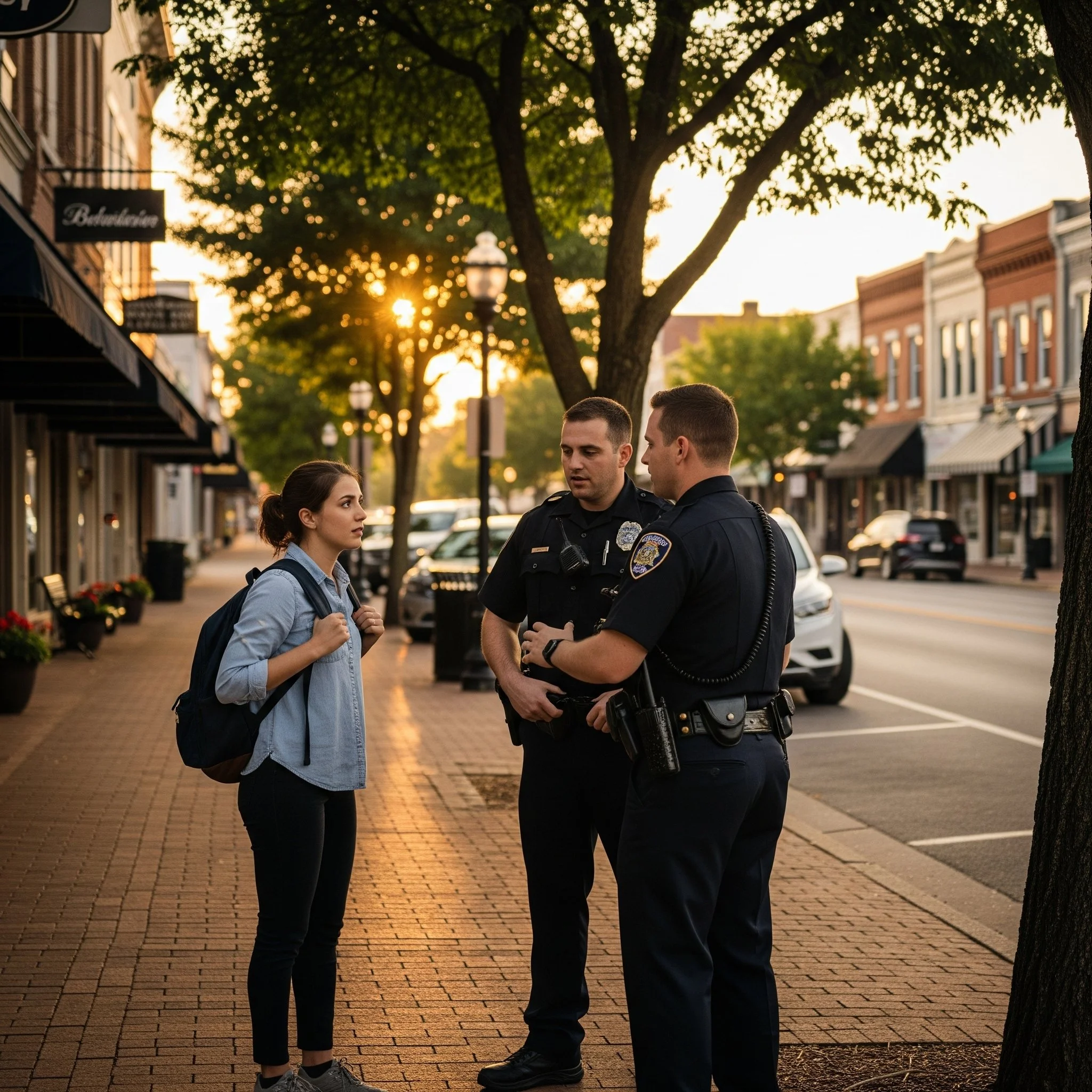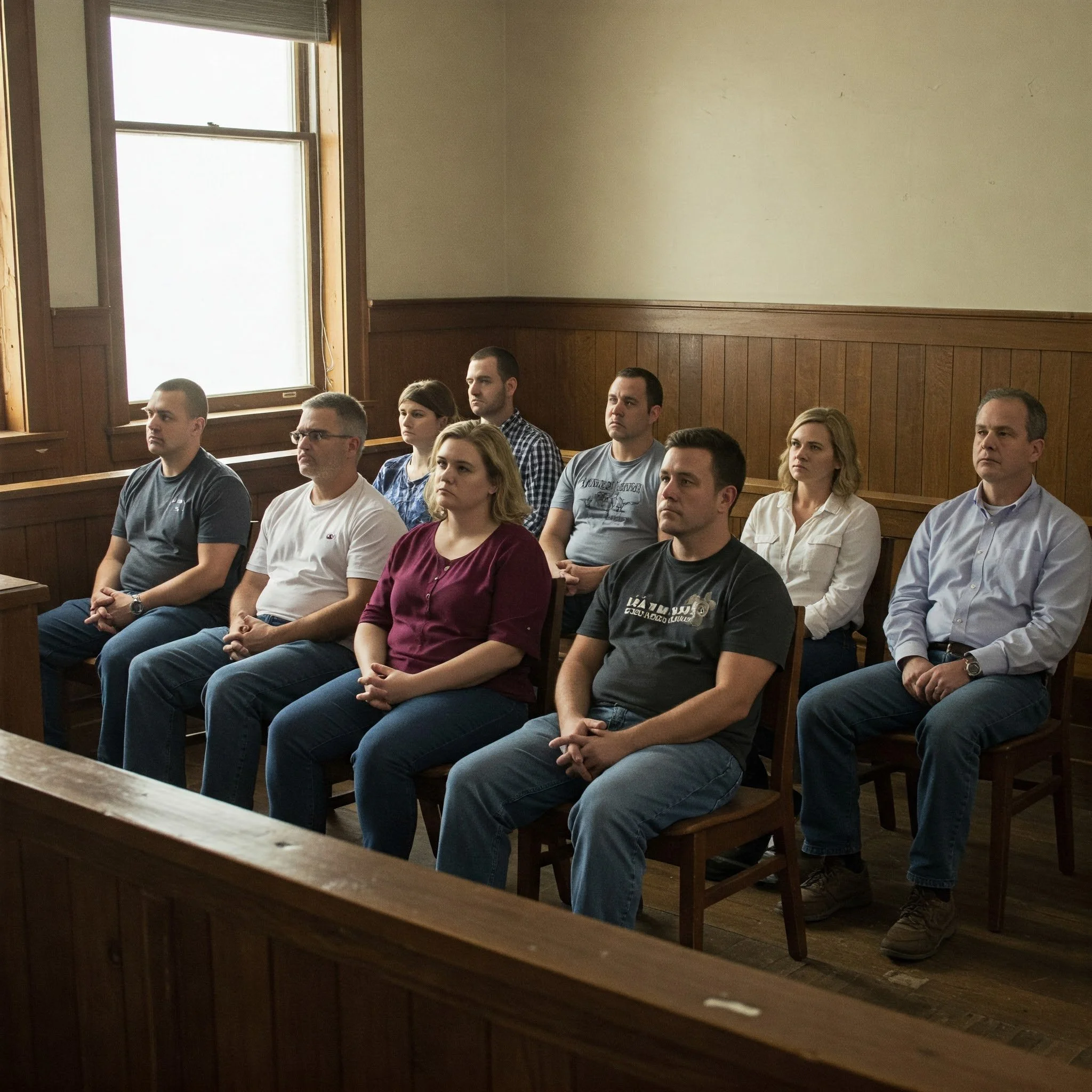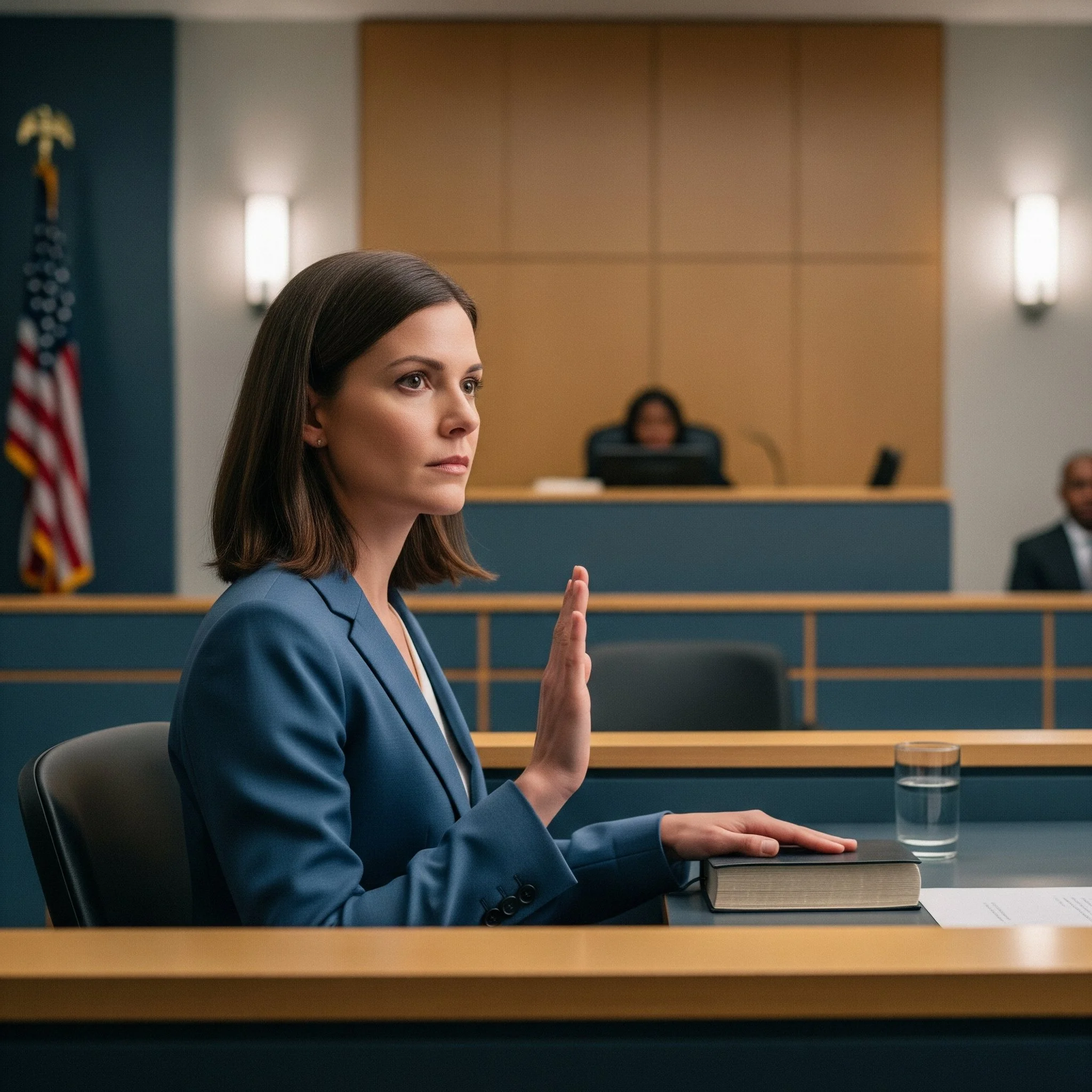Under Oklahoma law, the right of a criminal defendant to be present at trial is guaranteed by Article 2, Section 20 of the Oklahoma Constitution and Title 22 of the Oklahoma Statutes. While this right is fundamental, it is not absolute. Tulsa Oklahoma courts interpret this right as one that can be waived, either expressly by the defendant or impliedly through their conduct.
Rebuttal and Impeachment Witnesses
The law does not require the impossible. Rebuttal and impeachment evidence is often introduced to address unexpected evidence presented by the opposing party, and the nature of rebuttal testimony makes it impractical to mandate prior disclosure. Courts have consistently held that rebuttal and impeachment witnesses need not be endorsed or disclosed in advance, as the evidence they provide is contingent on the developments during the trial.
Pleading the Fifth: It Doesn't Mean You Can Always Remain Silent
The Fifth Amendment is a fundamental safeguard for the individual against the power of the state. But it's not a magic wand to avoid any and all uncomfortable questions in a legal setting. It is a specific and vital protection against being forced to be a witness in your own criminal downfall, and nothing more.
The Gun Under the Seat: Why It's Legally Yours
Illegal Seizure and the 4th Amendment
Prosecutorial Discretion
The Big Debate on Bail Bonds
We have seen recently how having too low a bond allowed defendants with long violent criminal records to get back out on the street, only to commit more crimes and in some cases the death of innocent people. Judges have a difficult decision in balancing the constitutional rights of a defendant, who is innocent until proven guilty,
Right to a Speedy Trial in Oklahoma
4th Amendment – Not Justice for All
Leverage in Criminal Cases
4th Amendment - Unconstitutional Stop
Women In Recovery Graduation
Graduation
This past Thursday evening I had the privilege of watching the Women in Recovery (WIR) graduation event. This was very special because of it was the 10th anniversary of the WIR program, and we had three (3) of the graduates as clients. (25% of the graduating class) It is a wonderful thing to see how far these courageous women have come, and what an inspiration they are to the next group coming through the program.
Women In Recovery
Women in Recovery (WIR) is an intensive outpatient alternative for eligible women facing long prison sentences for non-violent drug-related offenses. Operated in partnership with the George Kaiser Family Foundation, WIR works closely with the criminal justice system and various community partners to ensure program participants receive supervision, substance abuse and mental health treatment, education, workforce readiness training and family reunification services.
Hard Work
The women that go through this program have to be committed to doing the work necessary to battle their demons. The demons of their addiction, the demons of their past, and the demons of a still uncertain and challenging future. The program provides them with the opportunity to gain skills to stay sober, and cope with the challenges life, but in the end it is their commitment to being a better version of themselves that will make them successful for the rest of their lives.
Proud of our Contribution
We at Boeheim Freeman Law are proud to have helped so many women get into this great program, and stay in the program. It isn’t always easy. Sometimes it takes a great deal of persuasion to get the right parties to agree to give this individual a chance and sometimes a second chance. Too often the DA’s office objected to their entry and demanded prison time for these women who clearly had addiction issues. We overcame those objections and with the hard work and commitment of our clients, the DA’s office was proven wrong. In the past few graduating classes we have had women the DA’s office fought hard to send to prison. One in particular, completed the program sanction free, which is nearly impossible to do. Her hug and whispered “thank you” reminds us how important it is to continue to fight for both women and men who suffer from addiction and mental health issues, so they have an opportunity to get help and not just have their liberty taken.
Valuable Part of Society
Congratulations to the current graduating class and to all of the past graduates who work every day to be the best version of themselves. You should be very proud of yourselves!
Author: Brian J. Boeheim
Boeheim Freeman Law - 918-884-7791
Legal News & Case Updates
Will Marijuana Help the Opioid Crisis?
Oklahoma Courts Step Into the 21st Century
Video Conferencing in the Courtroom
The Oklahoma Legislature has recently taken a big step, with a new statute that allows videoconferencing technology to be used in the Oklahoma District Courts for hearings up to, during, and after trial in both civil and criminal cases. Prior to this, it was unlawful for videoconferencing to be used in the District Courts of Oklahoma. There are several minimum requirements; here are a few:
Everyone who is directly involved, i.e. the attorneys, witnesses, judge, defendant, court reporter, and interpreter, can see and be seen and hear and be heard.
Participants shall be able to see, hear, and communicate with each other simultaneously;
Participants shall be able to see, hear, and otherwise observe any physical evidence or exhibit presented;
Video and sound quality shall be adequate to allow participants to observe demeanor and nonverbal communications and to clearly hear what is taking place to the same extent as if they were present in the courtroom;
The location from which the trial judge is presiding shall be accessible to the public to the same extent as the proceeding would be if not conducted by videoconference;
When feasible, a party and the party's attorney should be allowed to communicate privately off the record by use of a private communication facility (cellphone, landline, facsimile, Skype, etc.) during the proceeding, or during a break. The court is not required to provide a private communication facility if none is available.
There are also some exceptions; here they are:
Situations where its use might create undue prejudice;
When a person is available, but simply does not wish to be in the courtroom;
Convenience vs the Value of the Testimony;
Whether its use would interfere with the full ability to cross-examine a witness;
In a circumstance where the gravity of being in the actual courtroom will impress upon the witness the importance of telling the truth;
Whether a physical liberty or other fundamental interest is at stake in the proceeding;
Whether the judge is comfortable with his or her ability to effectively control what is happening at the remote location;
Whether a distortion in the technology causes those present in the courtroom to reflect negatively upon the person at the remote location;
Whether use of the videoconferencing technology will diminish the integrity and fairness of a proceeding in a particular instance;
Whether the person proposed to appear by videoconferencing presents a significant security risk to transport and present personally in the courtroom;
The necessity of waivers and stipulations between the parties regarding the use of videoconferencing during a proceeding;
And anything else that the judge might think is relevant.
The party that wishes to use videoconferencing technology for the purpose of witness testimony must submit a motion stating their intent at least thirty (30) days prior to the proceeding. Any party that objects to this must submit their objection in writing within ten (10) days of the filing of the original notice.
So, what are the advantages of using this new technology in the courtroom? The cost benefit is particularly relevant to those needing an interpreter or court reporter where none is available to be physically present, and the time, effort, and finances that would be required to get someone to be physically present would be restrictive. This is particularly true of poorly served and rural areas that lack the same resources as larger metropolitan areas.
However, there is no rule stating that courts must employ this new technology, and since the initial cost to install the equipment and training would presumably be substantial, it is likely that the areas that are poorly served now, will not be able to afford the equipment that is necessary to meet the requirements set out in the statute. Furthermore, the statute does not specify who is supposed to pay for the installation and maintenance of the equipment. Is it the County Treasury? Is it the State? Is it the Court Fund?
So, when would the videoconferencing technology be most valuable? Obviously, when used for expert witness testimony. The ability to bring in the testimony of a nationally, or even internationally, renowned expert without having to pay travel costs would be an enormous cost savings for either side of a litigation. As mentioned above, the ability to bring in an interpreter for unique and specific languages and dialects, would also provide witnesses and defendants the ability to understand and be understood. This is not just important, but a Constitutional right.
What about the risks? Clearly, it is difficult to tell when someone is lying. Most people find it difficult to tell when they are face to face with someone. Seeing and hearing them over a video screen will only make that more difficult. Considering that a big part of a jury’s job is to determine the credibility and reliability of each witness, this knew technology leap could get in the way of justice. The level of personal separation videoconferencing technology provides has the potential to reduce the impact and gravity of the proceedings, creating an insulation or barrier to the stress and impact of a tough and vigorous cross-examination, harming the truth-finding process of witness confrontation. Furthermore, there are no security measures in place that would ensure that the remote location remains pristine and free from influence or bias that could taint witness testimony. It is feasible that a person could stand out of view of the camera and coaches a witness without the court’s knowledge.
Technology has invaded every part of our lives. It has increased the quantity of communication, but not necessarily the quality. There are efficiencies that would be created for the court system, but for each benefit there comes a possible risk. So, what stands in the way of this technology leap? The greatest barrier to this technological leap may be the fact that it requires financial and procedural investment, and the legal world tends to resist investment and resists procedural change even more.
Author: Lauren N. Stanley
DUI and Medical Marijuana in Oklahoma
Can I get a DUI even if I have a Medical Marijuana Card?
In Oklahoma, the short answer is yes. According to current Oklahoma Statutes, the ability to legally use a controlled substance for medical purposes does not mean that it is legal to operate a motor vehicle while under its influence (47 O.S. 11-902 (B)). This applies to any substance that might cause impairment, whether it is a prescription or not. If a substance impairs cognitive function and normal reflexes it is neither safe nor legal to drive. The legality of the substance is irrelevant.
There are many prescriptions that have side effects that include drowsiness or impaired reflexes and it will say so on the bottle when you receive it. “CAUTION!!! This medication may cause drowsiness! Do not drive or operate heavy machinery until you know how it affects you!” This applies to everything from heavy duty prescription narcotics to over-the-counter Benadryl.
According to the law, Marijuana is no exception. This exemplifies a situation in which older statutes have not been updated to reflect new laws. Marijuana is still listed as a Schedule I substance, even though Schedule I substances are considered to be those substances that lack a medical purpose (63 O.S. 2-203 & 63 O.S. 2-204 (C)(12)). The DUI Statute states that having anyamount of a Schedule I drug in your system is a violation (47 O.S. 11-902 (A)(3)). As such, testing positive is sufficient cause for prosecution, and the State does not have to prove that you were impaired, merely that it was in your system.
This is problematic for those who use legal medical Marijuana due to the fact that it lingers in your body long after its mind-altering effects have worn off. It can take up to thirty (30) days for your body to completely metabolize it.
This is a burgeoning issue in law and the administrative and legislative branches of the government are still trying to manage the legalization of Marijuana for medical purposes. As an individual, be sure to be responsible and take precautions to ensure your protection from a system that is still working out some of the kinks.
If you get stopped, politely decline from making any statements without your attorney present. Do not consent to taking the field sobriety test. Do not consent to a search of your vehicle. If you get arrested for a DUI call an experienced, aggressive, and compassionate team of attorneys that can handle the criminal and DPS issues for you. Why hire an attorney when you can hire a team?
Call Boeheim Freeman Law at 918-884-7791 for your free consultation.
Written by Lauren Stanley













